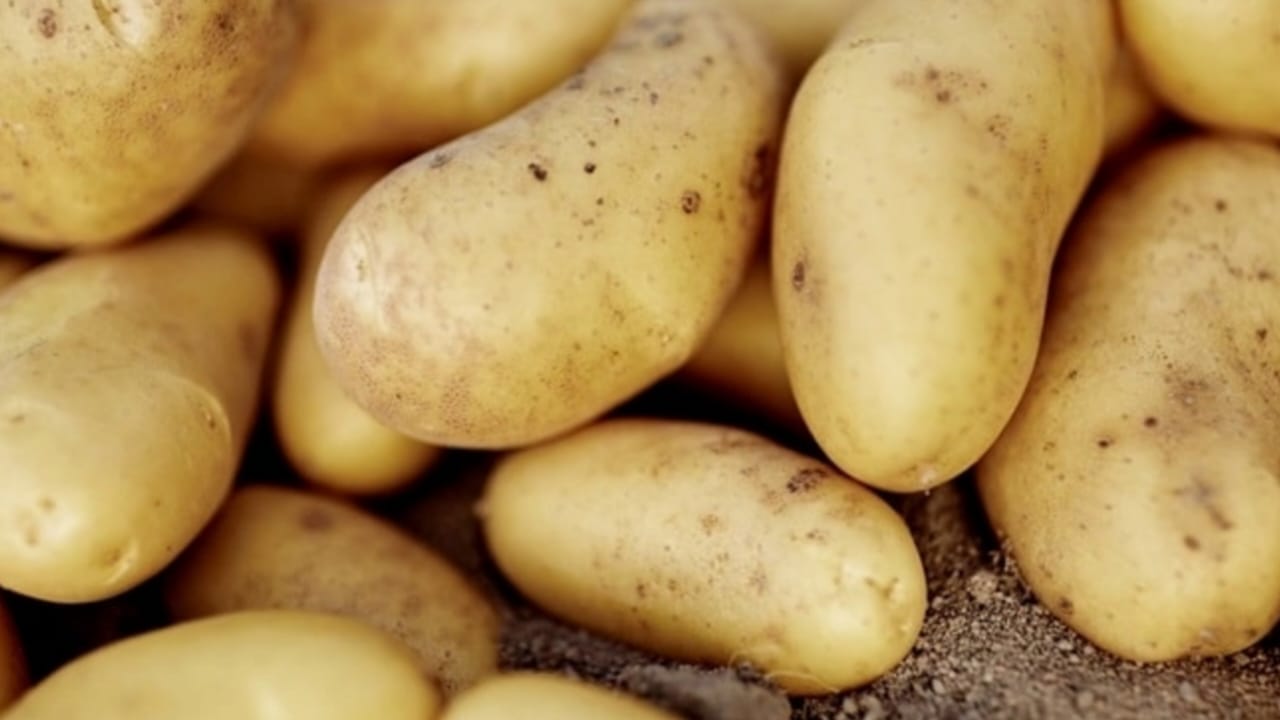Fresh food keeps its promise when storage supports it, and potatoes are no exception. Left in the wrong place, they soften, sprout, and lose flavor faster than you expect. Change a few habits instead: add distance from troublemakers, ensure airflow, and limit humidity. With those simple moves, shelf life stretches, textures stay firm, and colors remain safe. Weeknight meals feel easier without gadgets or special treatments. These tweaks take minutes and repay you all season.
Why Onions Make Stored Spuds Spoil Faster
In shared drawers and bowls, invisible plant signals speed ripening while trapped dampness breeds rot. Onions, garlic, and shallots emit ethylene that ages nearby produce quickly. That matters because tubers respire slowly. Vision deteriorates, surfaces wither, and quality diminishes, gradually forcing fresh produce toward completely preventable domestic disposal, regrettably, routinely.
Moisture quietly worsens the issue since alliums and tubers release water vapor during storage. When air cannot circulate, condensation forms, feeds microbes, and turns firm flesh slick. Ventilated containers reduce trapped humidity and slow decay. They preserve natural structure and taste, even as weeks pass and kitchens warm during cooking.
Isolation prevents the sequence: store bulbs and tubers in separate, ventilated holders, ideally on separate platforms. Use a dark pantry or cupboard where air moves freely, not packed drawers. With space, airflow, and dryness aligned, potatoes keep their snap longer. They resist early mushiness that ruins dinner plans and budgets.
How potatoes Respond to Ethylene and Moisture Indoors
Sustainable food expert Kelly D’Amico of Made to Sustain recommends a cool, dark, well-ventilated spot. Keep it away from alliums and ethylene-producing fruits. Apples and bananas emit gas, so proximity accelerates sprouting. When air flows through a mesh bag, basket, or paper bag, humidity disperses instead of settling on skins.
Although ethylene matters, D’Amico notes moisture often drives early failure near alliums. Wet surfaces and stagnant air create micro-climates where microbes thrive, while pores in tuber skins absorb excess dampness. Respiration never stops after harvest, so a humid pocket magnifies stress and pushes tubers toward softness and nutrient loss, unfortunately.
Choose breathable containers before aesthetics, since airflow beats sleek, sealed bins for longevity. Position containers where nothing obstructs airflow, then cycle inventory so earlier items advance forward. Simple habits, practiced consistently, deliver reliable results without gadgets, subscriptions, or special preservatives. They also reduce weekly waste with almost no extra effort.
Practical Storage Setup: Cool, Dark, Dry, and Ventilated
Target a steady, cool environment: a pantry shelf, a cupboard, or a drawer away from heat. Appliance exhaust warms nearby air, so cabinets by ovens or dishwashers shorten shelf life. Temperature swings pull moisture from tissues, so a consistent cool space preserves structure, slows sprouting signals, and keeps flavors balanced.
Skip the refrigerator, since cold converts starch and creates a gritty, unpleasant bite. Chill also disrupts enzymatic balance, so texture suffers even when skins seem firm. Instead, keep potatoes at room-like conditions, comfortably, where airflow carries away humidity. Stable temperatures let cells hold their shape and maintain reliable home-cooked appeal.
Light is another silent enemy. Sunlight exposure activates chlorophyll and bitter solanine, which signals hazardous sections; emerald areas and vigorous shoots should be eliminated. Store sacks in darkness, check weekly, and gently brush dirt without washing, because washing adds moisture that clings. That moisture encourages decay you cannot see clearly.
Light, Temperature, and Safety : Sprouts, Solanine, and Texture
Ethylene sensitivity explains sprouting, yet the moisture story explains mushiness. Where condensation forms, cells burst and structure collapses, so meals lose that satisfying bite. Good ventilation interrupts the cycle gradually. Distance from onions, garlic, and shallots limits signals that wake eyes and redirect energy from storage to wasteful growth indoors.
If you spot long sprouts or greened patches, trim generously; discard soft, wet, or musty pieces without hesitation. Safety rises when vigilance becomes routine because small problems spread quickly. Tiny sprouts indicate stress, not freshness. Cooking cannot reliably neutralize every risk tied to bitter, naturally occurring compounds like solanine safely.
Routine matters more than any gadget. Use breathable bags, label purchase dates, and rotate bins each grocery day. Small efforts stack up, so quality lingers while waste falls. With a regular inspection routine, potatoes maintain appealing texture longer. Broths, bakes, and chips then provide genuinely reliable satisfaction for active kitchens.
Smart Shopping, Rotation, and Containers That Help potatoes Last
Plan quantities realistically, since overbuying overwhelms storage capacity and traps humidity. Choose clean, dry skins with minimal eyes, and skip torn or damp bags hiding condensation. Ventilation encourages extended longevity, so a metal basket or perforated bag surpasses closed containers. Those neat vessels trap humidity around delicate, vulnerable surfaces effectively.
After unloading groceries, separate alliums and tubers immediately, then space containers apart. Keep apples and bananas elsewhere, as their ripening gas accelerates aging nearby. A cool shelf with steady air beats counters near sunny windows. Warmth and light push unwanted chlorophyll and bitter compounds indicating portions you should avoid instead.
A weekly two-minute check rescues borderline pieces before they spoil neighbors. Move older items forward, cook soft ones soon, and compost anything with musty odors. Small habits save money because fewer ingredients end up discarded. Meals taste better when freshness lasts across plans for stews, soups, roasts, and sides today.
Your kitchen runs smoother when small storage choices protect flavor and texture
Simple separation, steady airflow, low humidity, and darkness slow aging while extending the life of potatoes you already bought. Skip heat blasts, cold shocks, and window glare; choose breathable containers and rotate stock with care. These practical steps reduce waste, protect budgets, and keep home cooking satisfying. Minor habits accumulate gradually, so your storage remains orderly and your dishes stay satisfying. Fresh produce rewards attention with dependable flavor and better texture, week after week.
